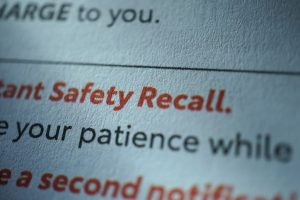
Yet another major food recall affects San Antonio consumers.
Contaminated Chicken Bites Recalled Nationwide
According to a MySA News report, The U.S. Department of Agriculture’s Food Safety and Inspection Service issued another major food recall after contaminates were reportedly discovered in the product.
Simmons Prepared Foods Inc. recalled TGI Friday’s Boneless Chicken Bites, Honey BBQ, after receiving an unspecified number of complaints about potential contaminates in the product. According to a news release by the FSIS, “pieces of clear, hard plastic” were discovered under the breading of the boneless bites. No injuries or illnesses were reported as a result of this contamination.
Affected packages have lot code KL3K03, best by date of 12/26/2024, and establishment number P-20287 inside the USDA mark of inspection. Consumers are advised to discard the product or request a refund.
Did You Know?
The FSIS is a part of the USDA and oversees the safety of meat, poultry, and egg products in the United States.
Prevent Foodborne Illness: Food Safety Tips for Holiday Leftovers
Holiday leftovers keep the season going long after Christmas Day. However, if these leftovers are not stored or reheated properly, they could make you and your family very sick.
This article will cover tips from the USDA on how to properly store and reheat your holiday leftovers so you can enjoy them safely long after the festivities are over.
Keep Food At Safe Temperatures
Bacterial growth in food happens very quickly between temperatures of 40° F, and 140° F. Warm food must be kept at 140° F or higher to prevent bacterial growth while serving. Cold items must be kept at 40° F or lower while serving. If any perishable item is left at room temperature for more than 2 hours, it must be thrown away.
If you’re hosting this holiday season, a great way to keep your hot food at safe temperatures while serving is by using a heating mat. Cold food items can be placed in an ice bath.
Cool Food Quickly
Storing a whole roast or a turkey this Christmas? Cut them into smaller portions and refrigerate to ensure they come to safe temperatures rapidly. Soup should also be broken up into smaller containers before refrigerating so it can cool faster.
Rice has a tendency to hold heat when not stored properly, leading to bacterial growth even in the fridge. When storing rice, place it in a plastic bag and press flat to ensure it cools through.
Proper Thawing Techniques
Freezing your leftovers? These three methods can help you thaw them safely:
- Refrigerator — This takes the most time but ensures your food will always be at a safe temperature.
- Cold Water — Cold water thawing is faster but has some risks. Make sure the bag is leak-proof, and cook thoroughly before re-freezing.
- Microwave — Food can be safely thawed in a microwave oven, but make sure to cook it until the internal temperature is 165° F.
Safe Reheating
All leftovers should reach an internal temperature of 165° F. Cover your leftovers when reheating in the microwave or oven — this will ensure they retain moisture and heat all the way through. Sauces and soups should be brought to a boil.
Contaminated Product Make You Ill? Call Carabin Shaw
Even if you follow all proper food safety techniques, contaminated products can still make you sick.
If you or your child were made seriously ill by a contaminated food product, you may have grounds for compensation. Our team has handled product liability cases in San Antonio for 30 years, and we put our clients first. Call the team that cares today at 800-862-1260. We look forward to serving you.
Contacting a Carabin Shaw attorney is free and does not obligate you to work with the firm.
²FSIS
 Texas Accident & Injury News
Texas Accident & Injury News

